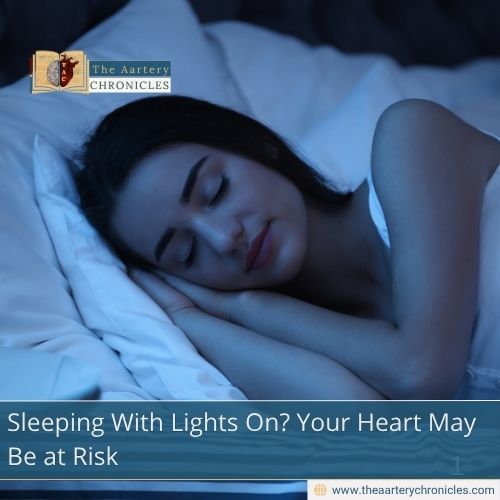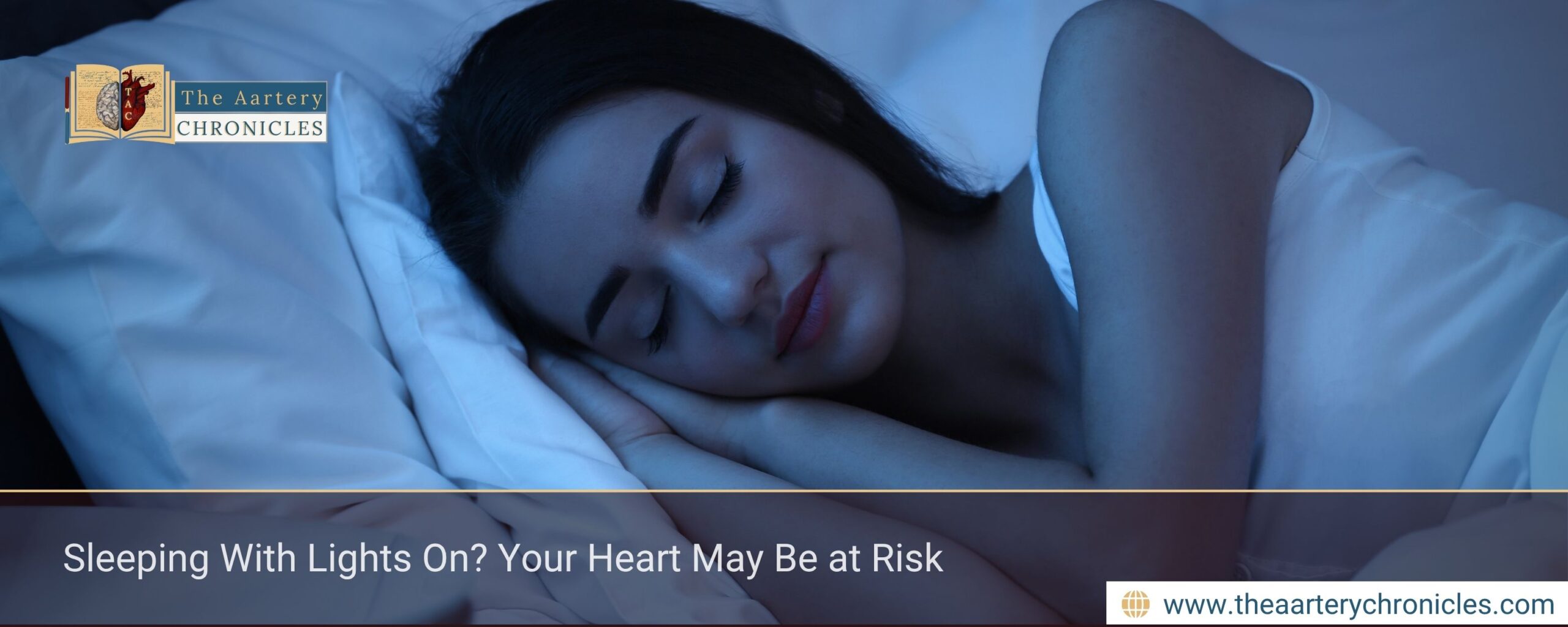

Sleeping With Lights On? Your Heart May Be at Risk
We often fall asleep with a bedside lamp glowing or a hallway light sneaking through the door. It may feel harmless, even comforting. However, new research warns that light exposure at night and cardiovascular health are more closely linked than most people realize.
A large study published in JAMA Network Open has revealed that sleeping under bright light, similar to having overhead lights switched on, may significantly increase the risk of heart disease, stroke, and heart failure.
What the Study Found
Researchers from Flinders University in Australia tracked the sleep environments of nearly 89,000 adults enrolled in the UK Biobank. Participants, with an average age of 62, wore wrist devices that measured light exposure between 12:30 a.m. and 6:00 a.m. over the course of a week. They were then monitored for about nine years.
The findings were eye-opening:
- People who slept in the brightest rooms had a 56% higher risk of heart failure,
- a 32% higher risk of coronary artery disease, and
- a 28% higher risk of stroke compared with those who slept in near-dark conditions.
According to Dr. Daniel Windred, co-first author of the study, the devices recorded only the intensity of the light, not the source, meaning researchers could not tell whether it came from lamps, TVs, or streetlights. Still, he emphasised that understanding where this light comes from could help develop more practical public health advice.
Why Light Exposure at Night Matters
Light plays a critical role in maintaining the body’s circadian rhythm, our internal 24-hour biological clock that regulates everything from sleep patterns to hormone production and blood pressure.
Dr Windred explained that when bright light continues into nighttime hours, it suppresses melatonin, the hormone that signals the body to rest. This disruption may interfere with the body’s natural recovery processes and increase risks of inflammation, high blood pressure, and damage to blood vessels, all of which can harm heart health over time.
Importantly, the study found that these associations remained strong even after accounting for lifestyle factors such as diet, exercise, alcohol use, and smoking. This suggests that the impact of light exposure at night on cardiovascular health is independent of other known heart risk factors
A Simple Way to Protect Your Heart
Experts say that minimising exposure to artificial light before and during sleep could be an easy, low-cost strategy to support cardiovascular wellness. Turning off overhead lights, using blackout curtains, or dimming screens can help the body maintain its natural night-day balance.
Interestingly, the same study also found that brighter light exposure during the day, such as getting sunlight soon after waking, was associated with better cardiovascular outcomes.
Conclusion
While more research is needed to fully understand how nighttime lighting affects the heart, the message from scientists is increasingly clear:
For better sleep and a healthier heart, embrace the dark when you rest and step into the light when you wake.
Managing light exposure at night and cardiovascular health could be one of the simplest steps toward preventing heart disease and improving overall well-being.
Source: Inputs from various media Sources
I’m a pharmacist with a strong background in health sciences. I hold a BSc from Delhi University and a pharmacy degree from PDM University. I write articles and daily health news while interviewing doctors to bring you the latest insights. In my free time, you’ll find me at the gym or lost in a sci-fi novel.
- Priya Bairagi
- Health News and Updates,People Forum
- 31 October 2025
- 22:00








